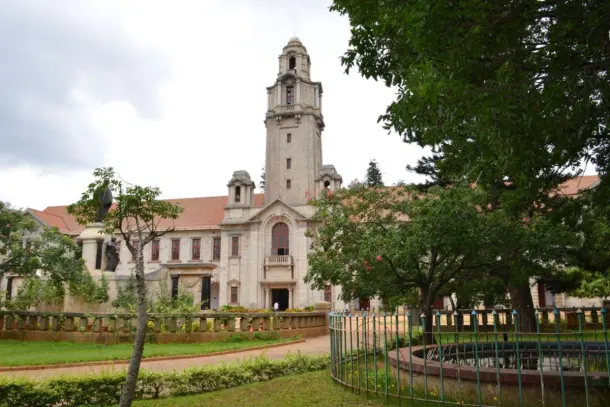News Brief
IIT Kanpur And IISc Bengaluru Planning To Set Up Medical Schools Within Their Campuses: Union Minister Jitendra Singh
Kuldeep Negi
Jun 29, 2025, 05:20 PM | Updated 05:46 PM IST
Save & read from anywhere!
Bookmark stories for easy access on any device or the Swarajya app.


Indian Institute of Technology (IIT) Kanpur and Indian Institute of Science (IISc) Bengaluru are planning to establish medical schools within their campuses, Union Minister of State for Science and Technology, Jitendra Singh, has revealed, according to an official statement.
The move aims to foster interdisciplinary innovation by integrating engineering, medical science, and research under one institutional framework.
He made the announcement during his keynote address at the Doctors’ Day Conclave organised by ET Times Now.
He also lauded India’s affordable healthcare models like Ayushman Bharat and institutions like Sree Chitra Tirunal Institute in Thiruvananthapuram, which integrates research, manufacturing, and clinical care.
Highlighting India’s health-tech transformation, Singh said the country is at the threshold of a grand new chapter, with its economy moving from the tenth to the fourth largest globally and the further ascent continuing.
He called for a “synergised, inclusive and futuristic healthcare ecosystem” aligned with the goals of Viksit Bharat @2047.
The minister cited Indian astronaut Shubhanshu Shukla's mission to the International Space Station, carrying indigenous life science kits, as a milestone that may soon give birth to a new medical discipline: Space Medicine, the Ministry of Science and Technology said in a statement.
"Very soon, we might have a dedicated stream in medical academics called Space Physicians. This is the future we must be ready for," said Singh.
Highlighting India's recent global achievements, Singh stated that India has emerged as a global leader in preventive and precision healthcare.
He noted that India developed the world’s first DNA vaccine for COVID-19 and an HPV vaccine to help prevent cervical cancer.
Further, India successfully conducted its first gene therapy trial for haemophilia, with the results published in the prestigious New England Journal of Medicine.
He added that the launch of Nafithromycin, the country’s first indigenously developed antibiotic molecule, marked a significant milestone in India’s pharmaceutical innovation landscape.
Singh underscored the need for a transformative approach to India's healthcare future.
He called for wider synergy across sectors, emphasising the importance of collaboration between academia, research institutions, industry, and government.
He also advocated for early-stage integration of the private sector in both research and healthcare delivery to ensure sustainability and scalability.
"Furthermore, he urged institutional innovation, citing proposals by premier institutes like IIT Kanpur and IISc Bengaluru to establish medical schools within their campuses — a step he believes will foster interdisciplinary excellence and create a new model of holistic education and healthcare," the statement said.
Kuldeep is Senior Editor (Newsroom) at Swarajya. He tweets at @kaydnegi.





